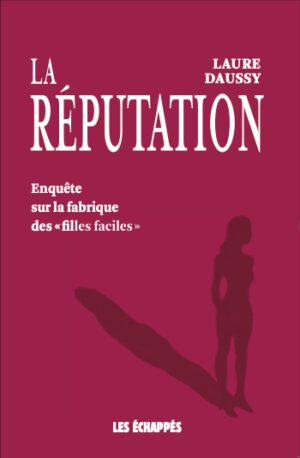
The book’s starting point is a feminicide, that of 15-year-old Shaïna, murdered in Creil by her boyfriend when he found out she was pregnant. Shaïna’s story is not a news item, but a social phenomenon: the exacerbated sexism that persists in certain housing estates. Twenty years after Sohanne Benziane, a young girl is once again burned to death. How did we get here?
Based on Shaïna’s story, this investigation plunges the reader into the unspoken laws of a neighborhood—a woman has to be “respectable”, so as not to fall prey to rumors and a reputation as an “easy girl” that she can‘t shake off. What she wears, who she associates with and her sexuality are all under control, and become a collective issue.
Over the course of a year, Charlie Hebdo journalist Laure Daussy gathered the testimonies of women living in Creil, to bring their voices to the fore. These girls had no access to the MeToo movement, and some had never even heard of it.
The book is punctuated by portraits of women who sometimes have to hide in order to love and live freely. The boys’ voices are also heard, in an attempt to understand how they come to impose their laws, in the name of their own “reputation”.
This book is also an immersive investigation into the town of Creil, at the heart of contemporary issues. The rise of religious rigorism since the “headscarf affair”, deindustrialization, ghettoization and the abandonment of the most disadvantaged populations. To protect these women, the justice system and public services are all too often inadequate. Against this backdrop, the worst rumors flourish, creating sexist ghettos.